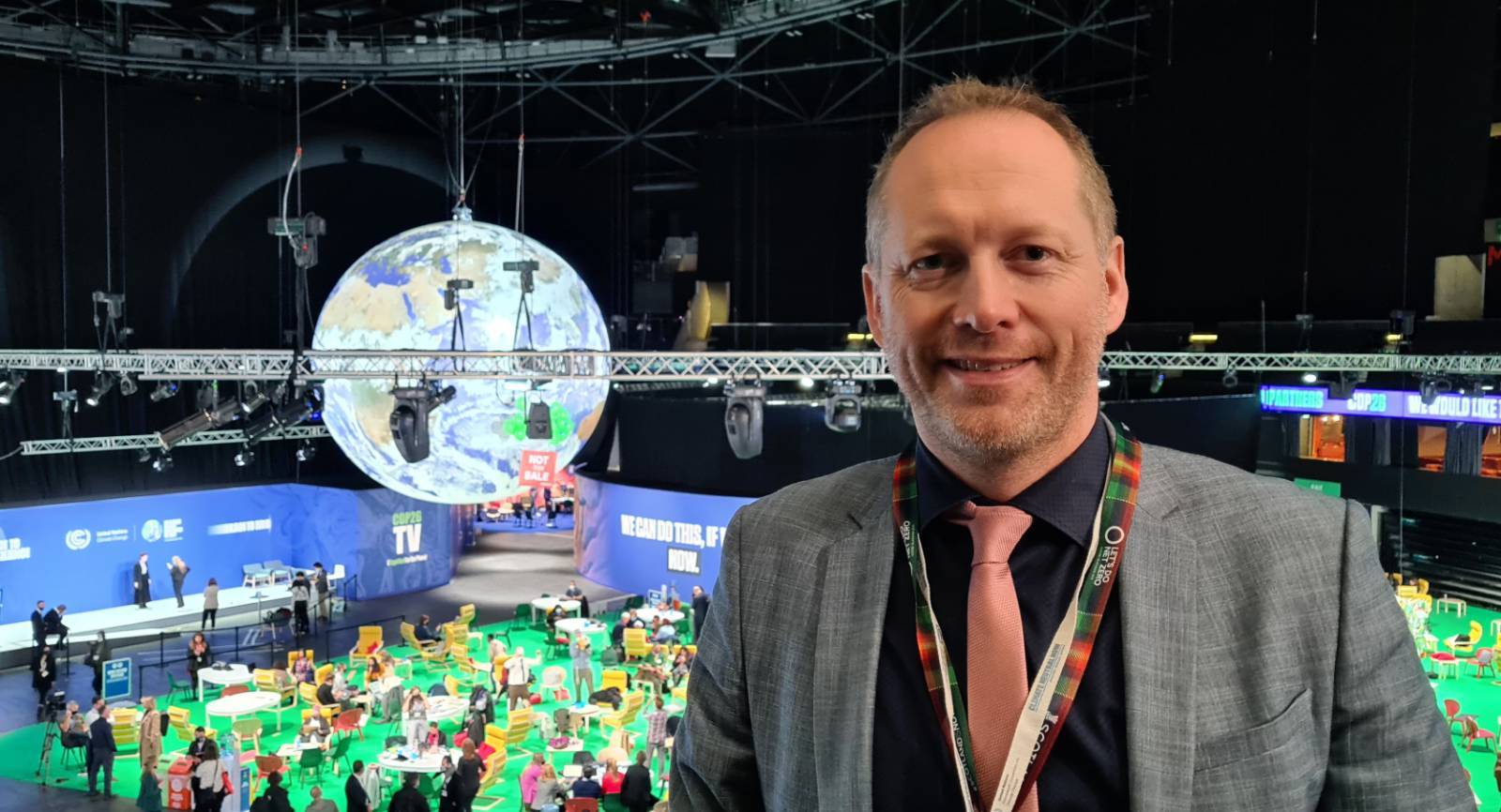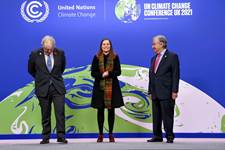COP26 results a cause for optimism, says Iceland‘s Environment Minister
Guðmundur Ingi Guðbrandsson, Iceland‘s Minister for the Environment and Natural Resources, says that the final results of COP26 in Glasgow is a source of optimism for the most urgent task of the 21st Century: To avert a climate catastrophe. Of special importance is the affirmation of the 1.5°C goal of the Paris Agreement, and the determination to keep that goal alive by reviewing the so-called Nationally Determined Contributions (NDCs) in 2022.
One of the main tasks of COP26 (the 26th annual conference of the Parties to the UN Framework Convention on Climate Change (UNFCCC)) was to receive and review updated NDCs from Parties to the Paris Agreement. The NDCs that countries submitted in Paris in 2015 would have resulted in global warming of over 3°C, which is incompatible with the goal of the Paris Agreement of keeping warming well within 2°C while pursuing efforts to keep warming within 1.5°C. Many countries, including Iceland, updated their NDCs before COP26 and upgraded their ambition level. Still, the current NDCs are likely to result in 2.4°C warming, according to the UN Environment Programme (UNEP).
Iceland upgraded its ambition level from 40% cuts in greenhouse gas emissions to 2030 compared to 1990, to 55% cuts. Iceland has, along with Norway, an agreement with the European Union and its Member States of collective delivery of the Paris Agreement, so that the 29 countries will jointly achieve 55% reduction in emissions by 2030.
Iceland submits its first Long-Term-Low-Emissions Strategy
Iceland submitted its first Long-Term Low-Emissions Strategy to the UNFCCC just before COP26, and is one of almost 40 countries that have done so. The Strategy outlines possible pathways to reach Iceland‘s stated goal of achieving climate neutrality no later than 2040. Earlier this year the Icelandic Parliament adopted a legislation affirming that goal, making Iceland one of a dozen countries or so to make a goal of climate neutrality legally binding.
Iceland‘s Prime Minister, Katrín Jakobsdóttir, addressed COP26 at its outset, emphasizing the need for countries to upgrade their pledges to meet the goals of the Paris Agreement.
The main results of COP26 in Glasgow are:
- Reaching a consensus among the 197 Member States of the UNFCCC on a main outcome, which gives rise for optimism.
- An historic affirmation of the importance of keeping the 1.5°C goal alive.
- A call for more ambitious NDCs, compatible with the goals of the Paris Agreement, to be submitted before the end of 2022.
- The UNFCCC Secretariat was given the task of updating an annual report on NDCs and the expected resulting cuts in emissions. The report will be submitted to COP.
- The pledge of 100 billion dollar in climate finance to developing countries will be met soon, with a regret shown that the goal was not reached by 2020.
- The so-called „Rulebook“ of the Paris Agreement was finalized, which makes the Agreement fully operationalized.
- For the first time a COP Decision calls for a reduction in the use of coal and in subsidies for fossil fuels.
- Developed countries will double their assistance to developing countries for adaptation to climate change.
The core decision of COP26 emphasizes the impact of climate change on the oceans and the cryosphere, and on biological diversity; and the importance of nature-based solutions, including the restoration of ecosystems.
An emphasis is put on just transition, equality and human rights in the changes ahead, and on the enhanced role of young people in climate projects and decisions.
Iceland sets ambitious goals on land use and zero emissions vehicles
Iceland signed five declarations on climate mitigation efforts in selected fields during COP26, that were connected with the Glasgow meeting, but not a part of the formal COP26 decisions and proceedings. They involve methane emissions, forests and land use, zero-emissions vehicles, emissions from shipping and international public support for the clean energy transition.
Iceland has set ambitious goals and projects regarding two of the above declarations; on land use and zero emissions vehicles. In it’s Climate Action Plan Iceland put an emphasis on clean energy transition in transport and on nature-based solutions in land use, including afforestation, revegetation and restoration of drained wetlands. Iceland has greatly enhanced its efforts in land-use climate mitigation actions in recent years, with significant increase in government-funded projects. Iceland is now #2 in the world in the share of low- and zero-emissions vehicles as a percentage of total car sales, following sizable government incentives for buying electric and other low-emissions cars and a government-supported push in charging stations and other infrastructure for electric vehicles.



